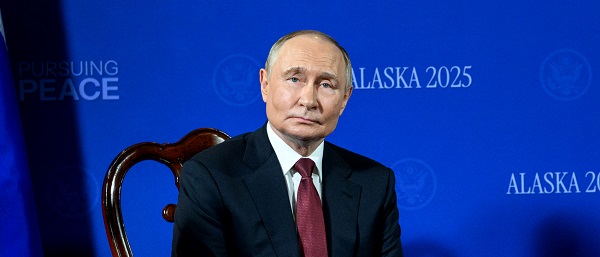Uncategorized
14% of Canadians struggling to heat, cool their homes: Statistics Canada

From LifeSiteNews
‘In 2023, 14 percent of Canadian households reported that they kept their dwelling at an unsafe or uncomfortable temperature for at least 1 month in the past 12 months because of unaffordable heating or cooling costs,’ StatsCan reported.
Statistics Canada has found that as energy costs continue to rise, some Canadians are unable to afford to properly heat or cool their homes.
On October 30, Statistics Canada reported that many Canadians are keeping their homes at “unsafe or uncomfortable” temperatures as they are unable to pay energy bills amid Prime Minister Justin Trudeau’s ongoing energy regulations and taxes.
“In the face of rising energy prices, not all Canadian households are able to adequately heat and cool their dwellings, resulting in possible increased risk of climate-related morbidity and even death,” StatsCan wrote.
“In 2023, 14 percent of Canadian households reported that they kept their dwelling at an unsafe or uncomfortable temperature for at least 1 month in the past 12 months because of unaffordable heating or cooling costs,” the report continued.
The research found that over a quarter of households (26 percent) in 2023 did not use air conditioning. Similarly, 26 percent of Canadians do not have air conditioning or cooling equipment in their homes.
36 percent of those who went without air conditioning lived in the lowest income bracket, while only 15 percent were in the highest income bracket.
Furthermore, Canadians living in apartments are least likely to have air conditioning. Numbers revealed 38 percent of Canadians in low-rise apartments and 33 percent of Canadians in high-rise apartment do not use air conditioning.
According to StatsCan, a lack of air condition can “lead to dangerous living conditions and has been linked to an increased risk of heat-related morbidity and mortality.”
The report found that 2 percent of households were so affected by their home being too hot or too cold that a member of their household required medical care.
As energy bills continue to rise, one in seven Canadians have been forced to go without necessities, such as food and medicine, to pay their energy bills. Additionally, about 8 percent revealed that they have had to go without necessities for at least three months.
Research found that 27 percent of those who have had to sacrifice basic necessities to pay energy bills are single-parent families. Single parents are 1.5 times more likely to forfeit necessities than couples with children and 3 times more likely than couples without children.
Additionally, some Canadians are unable to make their payments at all. In the past 12 months, 3 percent of households said their energy was disconnected or shut off, while one in ten reported that they could not pay their bill on time or at all.
The StatsCan findings come amid ongoing debate over Trudeau’s carbon tax, which extends to many forms of home heating.
Trudeau recently determined to suspend the carbon tax for home heating oil, a decision which has been criticized for benefiting Atlantic provinces, a historically Liberal stronghold, while leaving western and Conservative provinces literally out in the cold.
As a result, Saskatchewan Premier Scott Moe said his province will stop collecting a federal carbon tax on natural gas used to heat homes come January 1, 2024, unless it gets a similar tax break as the Atlantic Canadian provinces.
However, Trudeau, along with other Liberal officials, have announced that no more concessions are to be made.
“There will absolutely not be any other carve-outs or suspensions of the price on pollution,” Trudeau told reporters. “This is designed to phase out home heating oil, the way we made a decision to phase out coal… This is specifically about ending the use of home heating oil.”
Trudeau’s statement was supported by both Natural Resources Minister Jonathan Wilkinson and Environment Minister Steven Guilbeault.
Wilkinson dismissed Moe’s demand of further tax relief, saying, “There will be no more carve-outs coming.”
“We expect him to comply with the laws of the land,” he added. “It is a requirement that they collect that or that it be collected in some way.”
Conservative Party of Canada (CPC) leader Pierre Poilievre condemned the rising energy costs citing the carbon tax as a driving factor and making reference to the StatsCan report.
“Already, 14 percent of Canadians are living with unsafe temperatures in their homes. One in 10 have missed a heating bill in the last 12 months. Will he, before people go cold and hungry, axe the tax so that people can keep the heat on?” he asked in Parliament.
Trudeau’s decision comes as Atlantic Liberals are beginning to vote alongside Conservatives to end the carbon tax. The Atlantic provinces have voted primarily Liberal since 2015, but recent polls reveal that many Canadians living there plan to vote Conservative.
Trudeau’s carbon tax, framed as a way to reduce carbon emissions, has cost Canadians hundreds more annually despite rebates.
The Office of the Parliamentary Budget Officer calculated the total carbon tax costs for fuel in 2023 minus the government rebates. The steepest increase is for Albertans, who will pay an average of $710 extra per household. Following Alberta is Ontario with a $478 increase.
Prince Edward Island households will pay an extra $465, Nova Scotia $431, Saskatchewan $410, Manitoba $386, and Newfoundland and Labrador $347.
The increased costs are only expected to rise, as a recent report revealed that a carbon tax of more than $350 per tonne is needed to reach Trudeau’s net-zero goals by 2050.
Currently, Canadians living in provinces under the federal carbon pricing scheme pay $65 per tonne, but the Trudeau government has a goal of $170 per tonne by 2030.
Uncategorized
Cost of bureaucracy balloons 80 per cent in 10 years: Public Accounts

The cost of the bureaucracy increased by $6 billion last year, according to newly released numbers in Public Accounts disclosures. The Canadian Taxpayers Federation is calling on Prime Minister Mark Carney to immediately shrink the bureaucracy.
“The Public Accounts show the cost of the federal bureaucracy is out of control,” said Franco Terrazzano, CTF Federal Director. “Tinkering around the edges won’t cut it, Carney needs to take urgent action to shrink the bloated federal bureaucracy.”
The federal bureaucracy cost taxpayers $71.4 billion in 2024-25, according to the Public Accounts. The cost of the federal bureaucracy increased by $6 billion, or more than nine per cent, over the last year.
The federal bureaucracy cost taxpayers $39.6 billion in 2015-16, according to the Public Accounts. That means the cost of the federal bureaucracy increased 80 per cent over the last 10 years. The government added 99,000 extra bureaucrats between 2015-16 and 2024-25.
Half of Canadians say federal services have gotten worse since 2016, despite the massive increase in the federal bureaucracy, according to a Leger poll.
Not only has the size of the bureaucracy increased, the cost of consultants, contractors and outsourcing has increased as well. The government spent $23.1 billion on “professional and special services” last year, according to the Public Accounts. That’s an 11 per cent increase over the previous year. The government’s spending on professional and special services more than doubled since 2015-16.
“Taxpayers should not be paying way more for in-house government bureaucrats and way more for outside help,” Terrazzano said. “Mere promises to find minor savings in the federal bureaucracy won’t fix Canada’s finances.
“Taxpayers need Carney to take urgent action and significantly cut the number of bureaucrats now.”
Table: Cost of bureaucracy and professional and special services, Public Accounts
| Year | Bureaucracy | Professional and special services |
|
$71,369,677,000 |
$23,145,218,000 |
|
|
$65,326,643,000 |
$20,771,477,000 |
|
|
$56,467,851,000 |
$18,591,373,000 |
|
|
$60,676,243,000 |
$17,511,078,000 |
|
|
$52,984,272,000 |
$14,720,455,000 |
|
|
$46,349,166,000 |
$13,334,341,000 |
|
|
$46,131,628,000 |
$12,940,395,000 |
|
|
$45,262,821,000 |
$12,950,619,000 |
|
|
$38,909,594,000 |
$11,910,257,000 |
|
|
$39,616,656,000 |
$11,082,974,000 |
Uncategorized
New report warns WHO health rules erode Canada’s democracy and Charter rights

The Justice Centre for Constitutional Freedoms has released a new report titled Canada’s Surrender of Sovereignty: New WHO health regulations undermine Canadian democracy and Charter freedoms. Authored by Nigel Hannaford, a veteran journalist and researcher, the report warns that Canada’s acceptance of the World Health Organization’s (WHO) revised International Health Regulations (IHR) represents a serious erosion of national independence and democratic accountability.
The IHR amendments, which took effect on September 19, 2025, authorize the WHO Director-General to declare global “health emergencies” that could require Canada to follow directives from bureaucrats in Geneva, bypassing the House of Commons and the will of Canadian voters.
The WHO regards these regulations as “binding,” despite having no ability or legal authority to impose such regulations. Even so, Canada is opting to accept the regulations as binding.
By accepting the WHO’s revised IHR, the report explains, Canada has relinquished its own control over future health crises and instead has agreed to let the WHO determine when a “pandemic emergency” exists and what Canada must do to respond to it, after which Canada must report back to the WHO.
In fact, under these International Health Regulations, the WHO could demand countries like Canada impose stringent freedom-violating health policies, such as lockdowns, vaccine mandates, or travel restrictions without debate, evidence review, or public accountability, the report explains.
Once the WHO declares a “Pandemic Emergency,” member states are obligated to implement such emergency measures “without delay” for a minimum of three months.
Importantly, following these WHO directives would undermine government accountability as politicians may hide behind international “commitments” to justify their actions as “simply following international rules,” the report warns.
Canada should instead withdraw from the revised IHR, following the example of countries like Germany, Austria, Italy, Czech Republic, and the United States. The report recommends continued international cooperation without surrendering control over domestic health policies.
Constitutional lawyer Allison Pejovic said, “[b]y treating WHO edicts as binding, the federal government has effectively placed Canadian sovereignty on loan to an unelected international body.”
“Such directives, if enforced, would likely violate Canadians’ Charter rights and freedoms,” she added.
Mr. Hannaford agreed, saying, “Canada’s health policies must be made in Canada. No free and democratic nation should outsource its emergency powers to unelected bureaucrats in Geneva.”
The Justice Centre urges Canadians to contact their Members of Parliament and demand they support withdrawing from the revised IHR to restore Canadian sovereignty and reject blind compliance with WHO directives.
-

 Censorship Industrial Complex2 days ago
Censorship Industrial Complex2 days agoDeath by a thousand clicks – government censorship of Canada’s internet
-

 Alberta2 days ago
Alberta2 days agoSchools should go back to basics to mitigate effects of AI
-

 International2 days ago
International2 days agoAt Least 15 Killed In Shooting Targeting Jewish Community At Australia’s Bondi Beach, Police Say
-

 Daily Caller2 days ago
Daily Caller2 days agoChinese Billionaire Tried To Build US-Born Baby Empire As Overseas Elites Turn To American Surrogates
-

 Great Reset2 days ago
Great Reset2 days agoViral TikTok video shows 7-year-old cuddling great-grandfather before he’s euthanized
-

 Business2 days ago
Business2 days agoMajor tax changes in 2026: Report
-

 International2 days ago
International2 days agoRussia Now Open To Ukraine Joining EU, Officials Briefed On Peace Deal Say
-

 Crime1 day ago
Crime1 day agoTrump designates fentanyl a ‘weapon of mass destruction’



